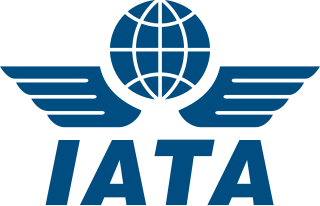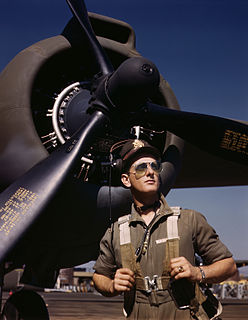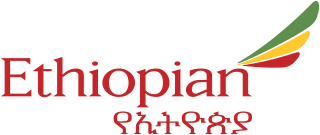
The International Air Transport Association is a trade association of the world's airlines founded in 1945.

An aircraft pilot or aviator is a person who controls the flight of an aircraft by operating its directional flight controls. Some other aircrew members, such as navigators or flight engineers, are also considered aviators, because they are involved in operating the aircraft's navigation and engine systems. Other aircrew members, such as drone operators, flight attendants, mechanics and ground crew, are not classified as aviators.

Commercial aviation is the part of civil aviation that involves operating aircraft for remuneration or hire, as opposed to private aviation.

An aviation accident is defined by the Convention on International Civil Aviation Annex 13 as an occurrence associated with the operation of an aircraft, which takes place from the time any person boards the aircraft with the intention of flight until all such persons have disembarked, and in which a) a person is fatally or seriously injured, b) the aircraft sustains significant damage or structural failure, or c) the aircraft goes missing or becomes completely inaccessible. Annex 13 defines an aviation incident as an occurrence, other than an accident, associated with the operation of an aircraft that affects or could affect the safety of operation.
Airport code may refer to:

Ethiopian Airlines, formerly Ethiopian Air Lines (EAL), is Ethiopia's flag carrier and is wholly owned by the country's government. EAL was founded on 21 December 1945 and commenced operations on 8 April 1946, expanding to international flights in 1951. The firm became a share company in 1965 and changed its name from Ethiopian Air Lines to Ethiopian Airlines.
AMT, or amt, may refer to:

A flag carrier is a transportation company, such as an airline or shipping company, that, being locally registered in a given sovereign state, enjoys preferential rights or privileges accorded by the government for international operations.

In aviation, aircraft ground handling defines the servicing of an aircraft while it is on the ground and (usually) parked at a terminal gate of an airport.

An airline hub or hub airport is an airport used by one or more airlines to concentrate passenger traffic and flight operations. Hubs serve as transfer points to help get passengers to their final destination. It is part of the hub-and-spoke system. An airline may operate flights from several non-hub (spoke) cities to the hub airport, and passengers traveling between spoke cities connect through the hub. This paradigm creates economies of scale that allow an airline to serve city-pairs that could otherwise not be economically served on a non-stop basis. This system contrasts with the point-to-point model, in which there are no hubs and nonstop flights are instead offered between spoke cities. Hub airports also serve origin and destination (O&D) traffic.

West Wind Aviation Limited Partnership was a Saskatchewan based airline.

Airlines for America (A4A), formerly known as Air Transport Association of America (ATA), is an American trade association and lobbying group based in Washington, D.C. that represents major North American airlines.

Mildura Airport is located 5 nautical miles southwest of Mildura, Victoria, Australia. It is the busiest regional airport in Victoria, the 32nd busiest Australian airport and has twice been named Australia's Rural Airport of the Year.

A transport hub is a place where passengers and cargo are exchanged between vehicles and/or between transport modes. Public transport hubs include railway stations, rapid transit stations, bus stops, tram stops, airports and ferry slips. Freight hubs include classification yards, airports, seaports and truck terminals, or combinations of these. For private transport by car, the parking lot functions as a unimodal hub.

Kingscote Airport is located 6.5 nautical miles southwest of Kingscote, South Australia, the main town on Kangaroo Island, in the locality of Cygnet River. The airport is the sole airport for Kangaroo Island. The airport is served by regular public transport and many charter flights. The airport is managed by the Kangaroo Island Council, which has operated the airport since 16 June 1983.

An airline ticket is a document or electronic record, issued by an airline or a travel agency, that confirms that an individual is entitled to a seat on a flight on an aircraft. The airline ticket may be one of two types: a paper ticket, which comprises coupons or vouchers; and an electronic ticket.

Civil aviation is one of two major categories of flying, representing all non-military and non-state aviation, both private and commercial. Most of the countries in the world are members of the International Civil Aviation Organization (ICAO) and work together to establish common standards and recommended practices for civil aviation through that agency.
This page is based on this
Wikipedia article Text is available under the
CC BY-SA 4.0 license; additional terms may apply.
Images, videos and audio are available under their respective licenses.













